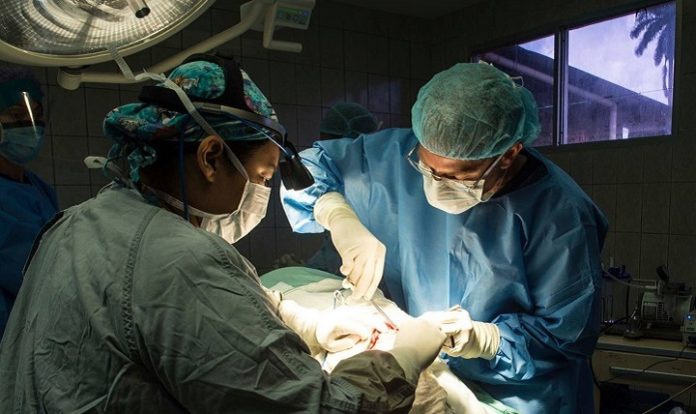Screening all patients before surgery improves patient safety as half of patients who test positive for COVID-19 have no symptoms
At a time when many states in India are busy barring laboratories from testing for COVID-19 in asymptomatic patients, this study should come as an epiphany.
Universally screening pediatric patients for COVID-19 before they undergo surgical procedures has allowed hospitals to improve safety by identifying all patients who test positive for the virus, half of whom have no symptoms, according to new research led by Children’s Hospital of Philadelphia (CHOP).
The study, which analyzed universal screening procedures at CHOP and two other major children’s hospitals, found that screening patients for COVID-19 allowed hospitals to ensure patients and physicians were not exposed to the virus. The findings were published in JAMA Surgery.
“CHOP’s commitment to screening every patient preoperatively has significantly improved patient safety,” said lead author Apurva Shah, MD, MBA, an orthopaedic surgeon in CHOP’s Division of Orthopaedics.
Data on preoperative pediatric patients for one month, from late March to late April 2020 was analyzed. Each of the three hospitals used a reverse transcriptase polymerase chain reaction (RT-PCR) assay to detect COVID-19 in patients with scheduled surgical procedures.
Of the 1,295 patients included in the study, the overall incidence of COVID-19 was 0.93%. However, the researchers found significant variation across hospitals, ranging from 0.22% to 2.65%. Even more striking, at CHOP, 55.56% of positive patients were from a single township, indicating that the incidence in children may vary depending on COVID-19 infection rates in the patients’ communities.
Among those pediatric patients who tested positive for COVID-19, half had no symptoms
Among those pediatric patients who tested positive for COVID-19, half had no symptoms. Of those who did have symptoms, the most common were fever and a runny nose. Nevertheless, the researchers noted symptoms were not useful in differentiating those who tested positive for COVID-19 and those who tested negative.
The authors emphasized that the findings show the value of universal screening in protecting both patients and physicians from COVID-19 exposure in all types of surgery at times when the SARS-CoV-2 virus is actively circulating in a community.
“If a patient tests positive for COVID-19, and the procedure doesn’t need to happen immediately, providers can reschedule surgery for a time when the patient has recovered,” Shah said. “But in some cases, surgery cannot wait, and in that situation, knowing a patient is positive for COVID-19 allows staff to protect themselves with appropriate personal protective equipment and prevent that patient from coming into contact with other patients and families.”
“As we start to relax social distancing measures, and children return to their ‘new normal’ with exposure to the community, universal testing for children undergoing surgery will be even more important,” said first author Elaina E. Lin, MD, an anesthesiologist in CHOP’s Department of Anesthesiology and Critical Care Medicine.


